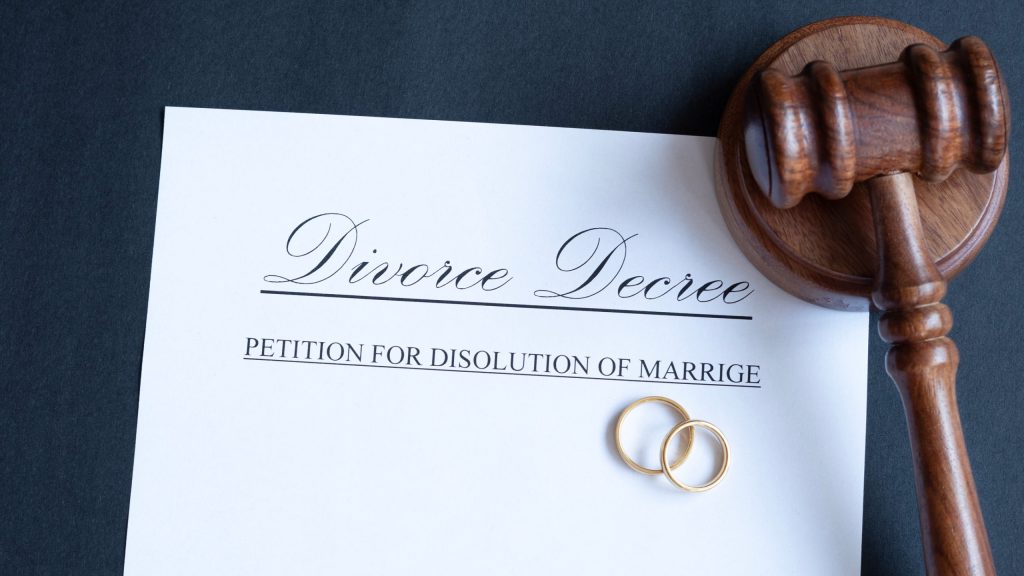
The divorce is final. You’ve divided the assets, created a custody plan, and are finally ready to move on with your new life. Your divorce decree, a legally binding court order, clearly states that your ex-spouse is responsible for paying the mortgage, the car loan, and the joint credit card debt. You breathe a sigh of relief, believing you are financially free from the burdens of your shared past. But you could be dangerously wrong.
Tucked away in the legalese is a hidden divorce clause—or rather, a glaring omission—that can haunt you for years. It’s a financial time bomb that can decimate your credit score without warning, leaving you unable to qualify for a new loan or even rent an apartment. Here’s the devastating truth your divorce attorney may not have adequately explained.
The ‘Indemnification Clause’: A Shield, not a Sword
Your divorce decree likely contains what’s called an “indemnification” or “hold harmless” clause. This clause states that if your ex fails to pay a joint debt they were ordered to pay, and the creditor comes after you, you have the right to sue your ex to recover your losses. On paper, this sounds like solid protection.
In reality, it’s a weak and often useless shield. It gives you the right to chase your ex for the money, but it does absolutely nothing to stop the original creditor from destroying your credit in the meantime. It’s a reactive tool, not a proactive one.
The Unbreakable Contract with Your Original Lender
This is the critical detail that most people miss. When you and your then-spouse signed the loan documents for your mortgage, car, or credit card, you entered into a legally binding contract with the lender. You both promised, jointly and severally, to pay back that debt. A family court judge has no authority to break that contract.
Your divorce decree is an agreement between you and your ex-spouse. Your mortgage agreement is an agreement between you and the bank. The bank does not care what your divorce decree says. If your name is on the loan, you are 100% legally responsible for 100% of the debt until it is paid in full.
How the Financial Nightmare Unfolds
Let’s say your decree orders your ex to pay the $2,000 monthly mortgage on the family home they kept. For six months, everything is fine. But then, your ex loses their job or simply decides to stop paying. Because you are no longer living in the house, you are completely unaware of the missed payments.
The bank, following its contract, starts reporting 30-, 60-, and then 90-day late payments to the credit bureaus under both of your names. Your pristine credit score plummets by 100 points or more. By the time you find out—usually when the bank starts foreclosure proceedings and sends you a notice—the damage is already severe.
The Credit Score Devastation
A single 30-day late payment can drop a good credit score by 60 to 110 points. A foreclosure is one of the most catastrophic events your credit report can experience, staying on your record for seven long years. Even if your ex eventually gets back on track, those late payments will remain, dragging your score down.
Suddenly, that car loan you need is denied. The apartment you wanted requires a co-signer. Your credit card interest rates skyrocket. You are being financially punished for your ex-spouse’s irresponsibility, and your divorce decree offers little immediate protection from this fallout.
The Only True Solutions: Refinance or Sell
The indemnification clause is not the protection you need. The only way to truly sever your financial ties and protect your credit is to get your name off the joint loan. There are only two ways to do this: your ex-spouse must refinance the debt solely in their name, or you must sell the asset and pay off the loan completely.
A refinance requires your ex to have sufficient income and a good enough credit score to qualify for the loan on their own. If they can’t, selling the asset is the only remaining option. Insisting on one of these two outcomes during the divorce negotiations is the only hidden divorce clause that truly matters.
Your Financial Future Is Your Responsibility
A divorce decree can declare who is responsible for a debt, but it cannot erase your original promise to a lender. The hidden divorce clause is the dangerous belief that a judge’s order will automatically protect your credit score. It won’t. Protecting your financial future requires you to be proactive. You must insist that all joint debts are either refinanced or paid off as part of the settlement. Leaving your name on a shared debt is a gamble on your ex-spouse’s future reliability—a risk no newly single person can afford to take.
For those who have been through a divorce, what is one piece of financial advice you wish you had known before the process started? Share your wisdom in the comments.
What to Read Next…
9 Financial and Legal Burdens Adult Children Face When a Parent Enters Hospice
10 Financial Documents You Should Never Leave With an Employer
6 Divorce Outcomes That Can Erase Retirement Assets Overnight
Why Elderly Couples Are Quietly Getting Divorced
Why Divorced Men Are Now Flocking to This One State
The post The Hidden Divorce Clause That Can Tank Your Credit for Years appeared first on Budget and the Bees.







